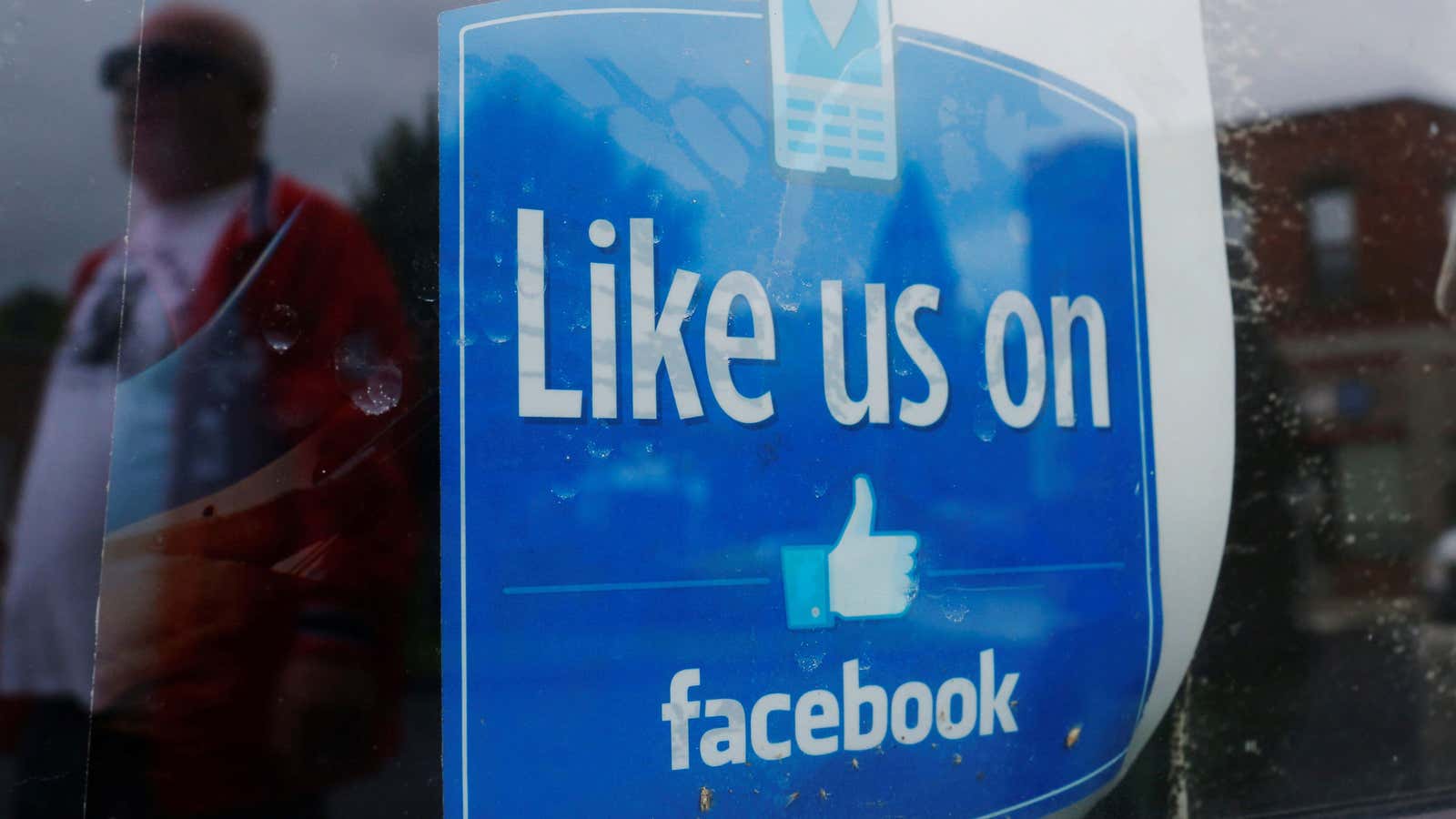Facebook is removing more than 5,000 ad targeting options in order to prevent advertisers from posting discriminatory ads, the company said on Tuesday (Aug. 21).
Nearly all of the targeting options are being removed from the “exclusion” category. In other words, advertisers won’t be able to exclude people who are interested in things such as “Evangelicalism,” “Passover,” or “Islamic Culture,” a spokesperson told Quartz. They will, however, still be able to target those who are interested in those terms.
“While these options have been used in legitimate ways to reach people interested in a certain product or service, we think minimizing the risk of abuse is more important,” the company said in a blog post.
Targeting has made Facebook the powerful advertising machine that it is, but it has also allowed bad actors, such as the Russian Internet Research Agency, to leverage this power while attempting to sow discourse and influence the 2016 presidential election.
The move comes two years after ProPublica reported that Facebook’s tools allow advertisers to place discriminatory ads, excluding minorities from seeing certain housing ads. Late last year, the publication reported that Facebook still hadn’t fixed the problem. Facing intense criticism over the issue, Facebook pledged to resolve it, and the latest announcement, which was first reported by BuzzFeed, is part of that effort.
For more than a year, Facebook has required housing, credit, and employment advertisers to certify that they would comply with local laws and the company’s non-discrimination policy. This will now be expanded to all US advertisers, and rolled out globally over time, a spokesperson said.
Last week, the US Department of Housing and Urban Development filed a complaint against Facebook over discriminatory ads. The platform, according to the complaint, allowed advertisers to exclude people interested in “deaf culture,” “mobility scooters” (which could be linked to people who have disabilities), or “parenting.” The Facebook spokesperson said the company’s latest move was not directly related to the HUD complaint.
